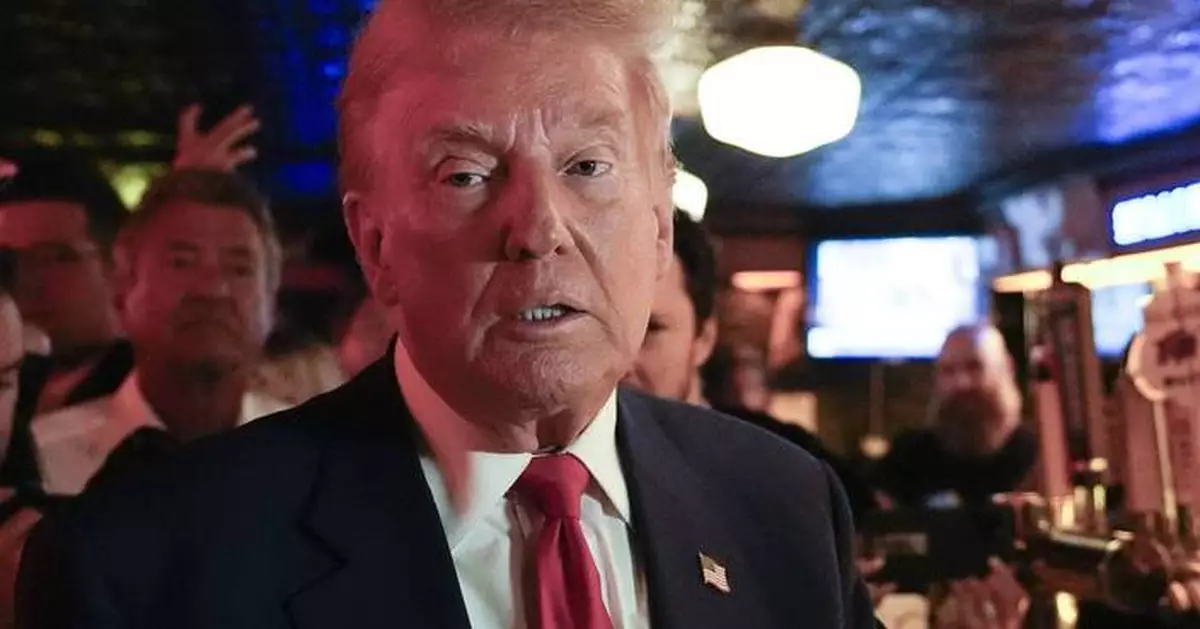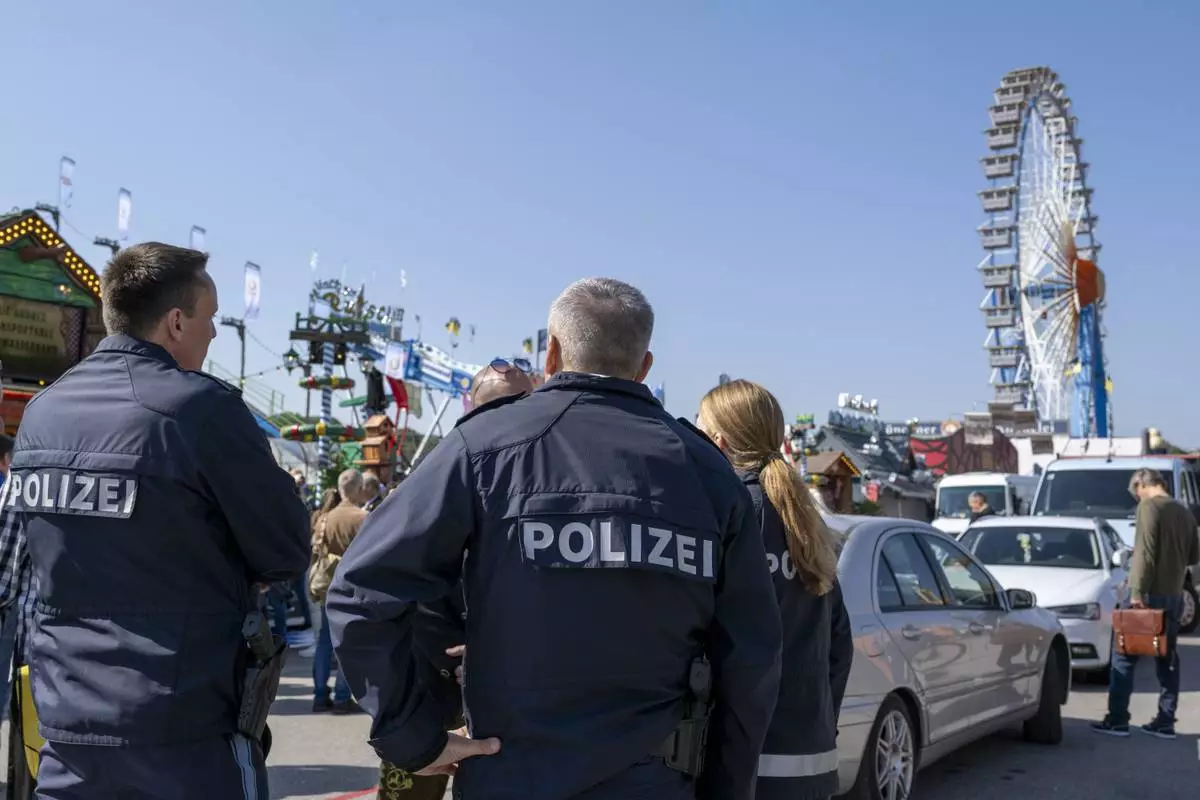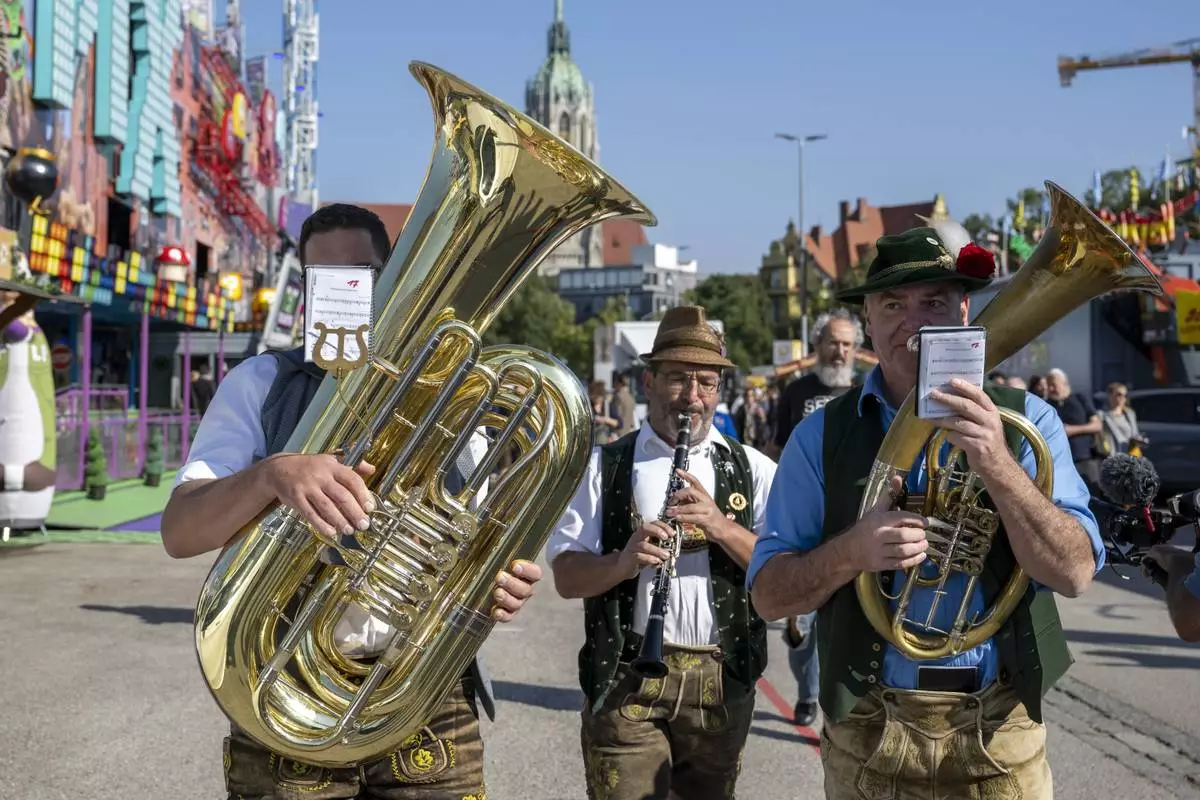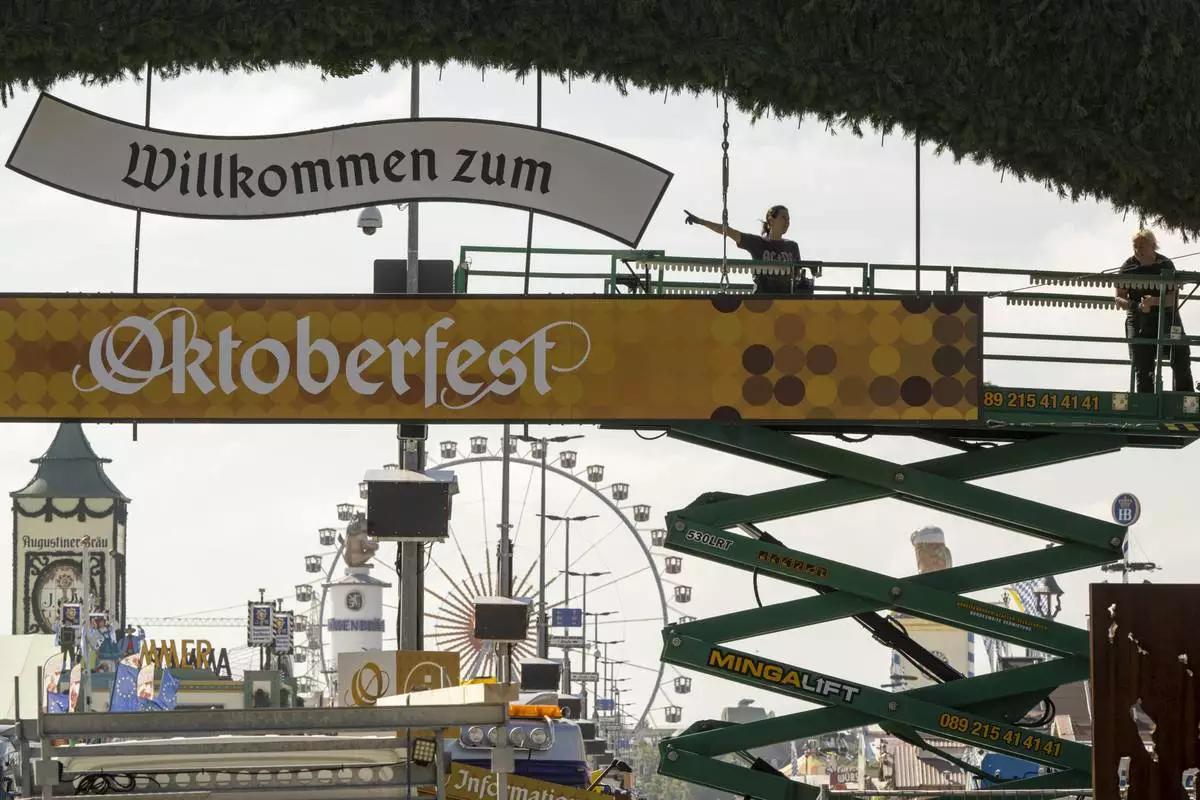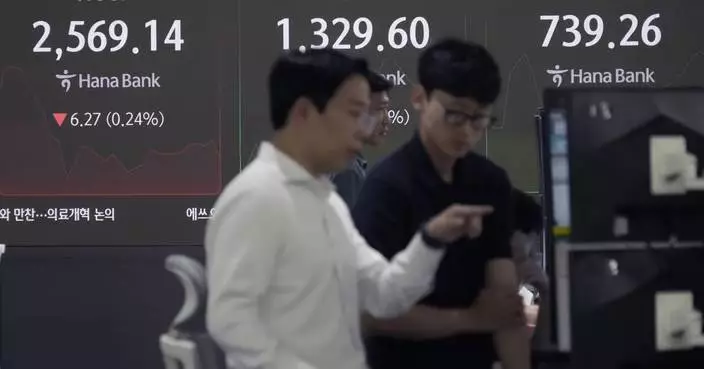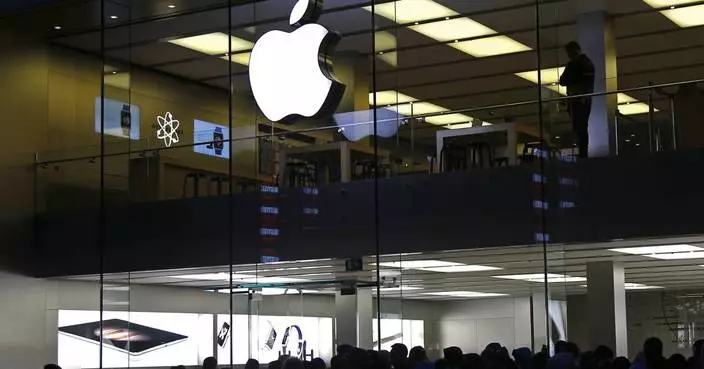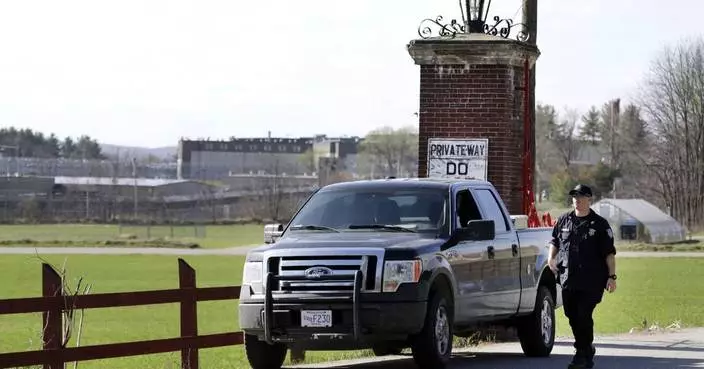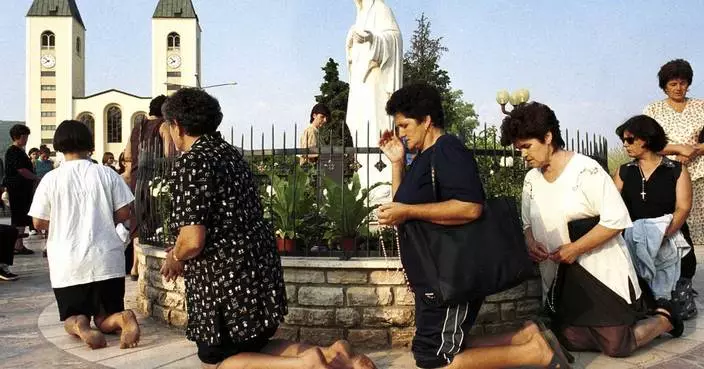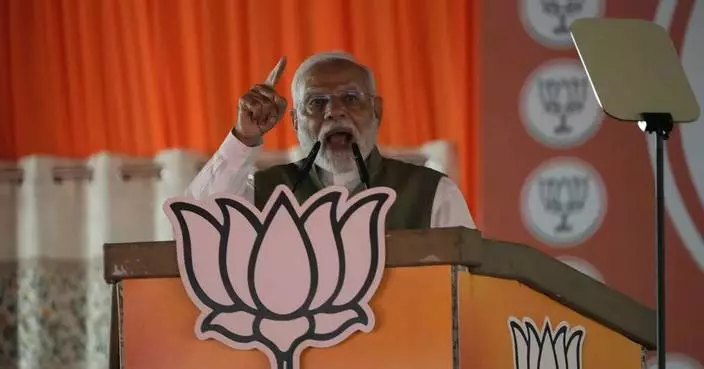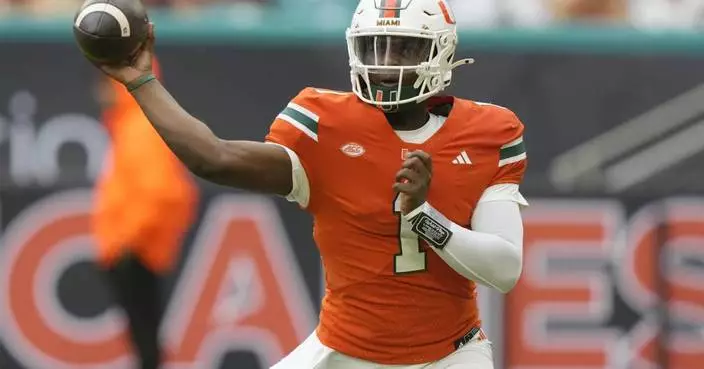WASHINGTON (AP) — Iranian hackers sought to interest President Joe Biden's campaign in information stolen from rival Donald Trump's campaign, sending unsolicited emails to people associated with the then-Democratic candidate in an effort to interfere in the 2024 election, the FBI and other federal agencies said Wednesday.
There's no indication that any of the recipients responded, officials said, and several media organizations approached over the summer with leaked stolen information have also said they did not respond. Kamala Harris' presidential campaign called the emails from Iran “unwelcome and unacceptable malicious activity” that were received by only a few people who regarded them as spam or phishing attempts.
The emails were received before the hack of the Trump campaign was publicly acknowledged, and there’s no evidence the recipients of the emails knew their origin.
The announcement is the latest U.S. government effort to call out what officials say is Iran’s brazen, ongoing work to interfere in the election, including a hack-and-leak campaign that the FBI and other federal agencies linked last month to Tehran.
U.S. officials in recent months have used criminal charges, sanctions and public advisories to detail actions taken by foreign adversaries to influence the election, including an indictment targeting a covert Russian effort to spread pro-Russia content to U.S. audiences.
It's a stark turnabout from the government's response in 2016, when Obama administration officials were criticized for not being forthcoming about the Russian interference they were seeing on Trump's behalf as he ran against Democrat Hillary Clinton.
In this case, the hackers sent emails in late June and early July to people who were associated with Biden's campaign before he dropped out. The emails “contained an excerpt taken from stolen, non-public material from former President Trump’s campaign as text in the emails,” according to a statement released by the FBI, the Office of the Director of National Intelligence and the Cybersecurity and Infrastructure Security Agency.
The agencies have said the Trump campaign hack and an attempted breach of the Biden-Harris campaign are part of an effort to undermine voters’ faith in the election and to stoke discord.
The FBI informed Trump aides within the last 48 hours that information hacked by Iran had been sent to the Biden campaign, according to a senior campaign official granted anonymity to speak because of the sensitive nature of the investigation.
The Trump campaign disclosed on Aug. 10 that it had been hacked and said Iranian actors had stolen and distributed sensitive internal documents. At least three news outlets — Politico, The New York Times and The Washington Post — were leaked confidential material from inside the Trump campaign. So far, each has refused to reveal any details about what it received.
Politico reported that it began receiving emails on July 22 from an anonymous account. The source — an AOL email account identified only as “Robert” — passed along what appeared to be a research dossier that the campaign had apparently done on the Republican vice presidential nominee, Ohio Sen. JD Vance. The document was dated Feb. 23, almost five months before Trump selected Vance as his running mate.
In a statement, Harris campaign spokesperson Morgan Finkelstein said the campaign has cooperated with law enforcement since learning that people associated with Biden’s team were among the recipients of the emails.
“We’re not aware of any material being sent directly to the campaign; a few individuals were targeted on their personal emails with what looked like a spam or phishing attempt,” Finkelstein said. "We condemn in the strongest terms any effort by foreign actors to interfere in U.S. elections including this unwelcome and unacceptable malicious activity.
Trump campaign national press secretary Karoline Leavitt called the effort to dangle stolen information to the Biden campaign “further proof the Iranians are actively interfering in the election” to help Harris.
Intelligence officials have said Iran opposes Trump’s reelection, seeing him as more likely to increase tension between Washington and Tehran. Trump’s administration ended a nuclear deal with Iran, reimposed sanctions and ordered the killing of Iranian Gen. Qassem Soleimani, an act that prompted Iran’s leaders to vow revenge.
Iran’s intrusion on the Trump campaign was cited as just one of the cyberattacks and disinformation campaigns identified by tech companies and national security officials at a hearing Wednesday of the Senate Intelligence Committee. Executives from Meta, Google and Microsoft briefed lawmakers on their plans for safeguarding the election, and the attacks they’d seen so far.
“The most perilous time I think will come 48 hours before the election,” Microsoft President Brad Smith told lawmakers during the hearing, which focused on American tech companies’ efforts to safeguard the election from foreign disinformation and cyberattacks.
Associated Press writer Jill Colvin in New York contributed to this report.
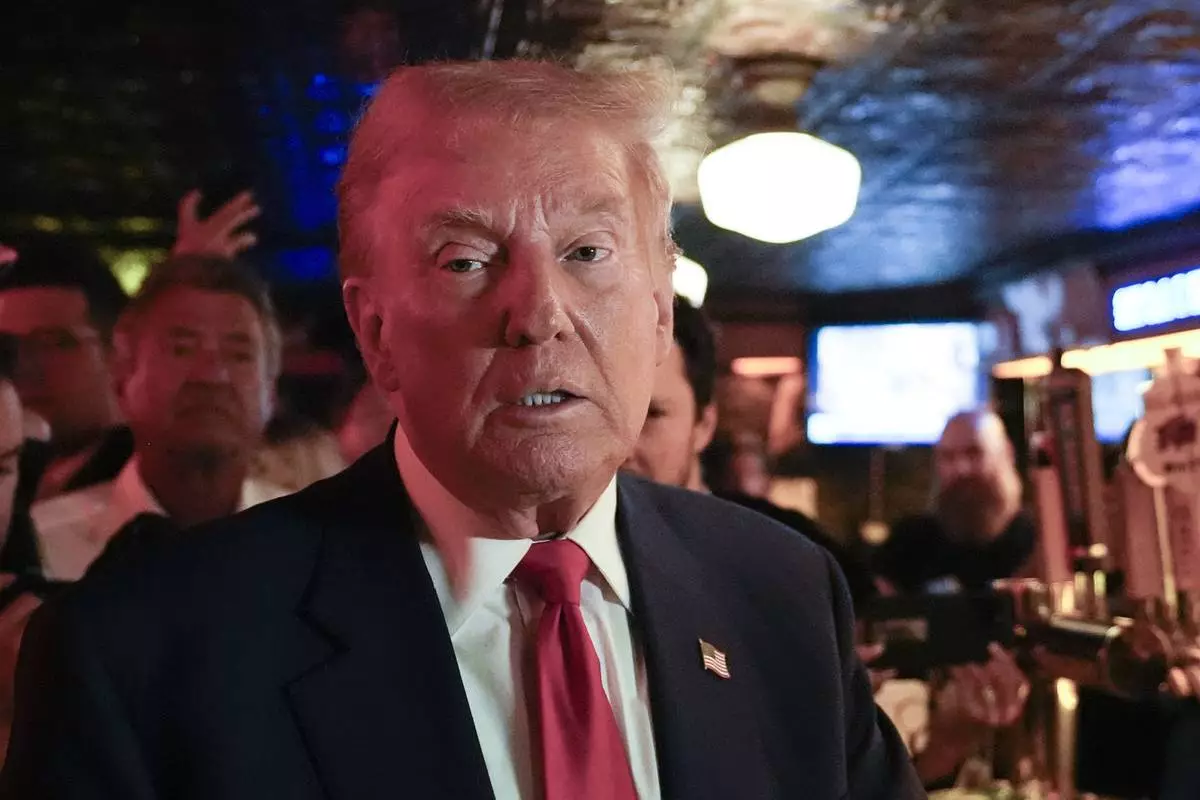
Republican presidential nominee former President Donald Trump makes a campaign stop at Pubkey Bar and Media House, Wednesday, Sept.18, 2024, in New York. (AP Photo/Alex Brandon)


